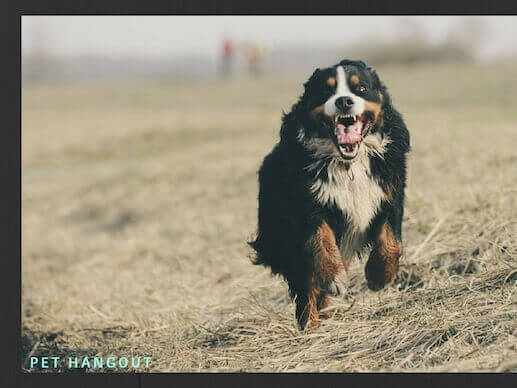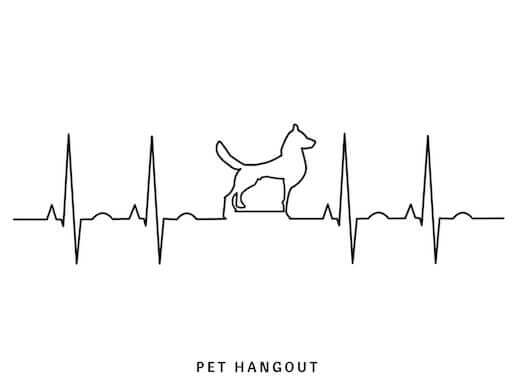Your shopping cart is empty!
MENU
- +
- Pet Lovers +
-
Cool Dogs+
-
Cool Cats+
- Grooming +
-
Health & Safety+
-
Home or Travel+
- +

Is my dog okay?
He is breathing faster than normal and I’m worried.
If this is you, then read on to troubleshoot what is happening with your furry friend.
Just like humans, if your dog has just finished some rigorous exercise, his heart rate is up and his breathing will be a lot faster. This is perfectly normal and nothing to be alarmed over.
So the first question to ask is:
Has my dog been running, playing, or recently finished exercising?

If the answer is yes, then all is well... Keep a watch on your pooch. His breathing should return to normal in less than 10 minutes. Go ahead and give him some water too.
No running or playing? Then read on…
If exercise isn’t the culprit, then you will want to explore further to discover what is going on with your dog.
Some other causes of rapid breathing:
Congestive heart failure - when the heart doesn’t pump properly, the blood that carries oxygen to the body isn’t pushed through the body properly. The body responds by increasing the rate at which it brings in the air. If oxygen isn’t getting to vital organs, you may also begin to see a decline in function of other vital organs.

Other things to look for: sleepiness, cough, fainting, swollen belly (with fluid), lack of appetite
What to do: Take your dog to the vet immediately! Medicines can be given to help manage their health.
Fluid on the lungs - this can be caused by an upper respiratory infection or a weak heart. Once the fluid enters the lungs, there is less room to take in oxygen. The body responds by increasing the rate of breathing to compensate.
Other things to look for: a dry cough, wheezing, crackling noises while breathing, open mouth breathing
What to do: Take your dog to the vet immediately! Medicines can be given to help manage their health.
Heart Murmur - A heart murmur is a whooshing sound in the heart. This could indicate heart disease, heart defects, tumors, or heart valve problems. A faulty heart will eventually lead to congestive heart failure for senior pets.
Other things to look for: grey or blue gums, doesn't want to exercise, congestion, coughing
What to do: Your pet can still live a pretty healthy and normal life while they are young. However, as they mature, you may start seeing fast breathing and congestion which means it's time to visit the vet. They will be able to access your pet's condition and possibly give medications to help manage the murmur.
Allergies/Upper respiratory problems - a stuffy nose, sinus drainage, excess mucous, or infections can clog up the airways for your dog. Blocked airways cannot take in as much oxygen so the body adjusts by breathing faster.

Other things to look for: increased scratching, itch or runny eyes, itchy ears, sneezing, vomiting, diarrhea
What to do: Your first course of action is to remove your pet from the allergen, if possible. You can also give your pet Benadryl to help with itching and sneezing. If you see thick and colored discharge for more than 2 days, you should make a trip to the vet. Your dog might just need an antibiotic to feel better.
Poisoning - There are certain foods like grapes, onions, and garlic that converts to toxic poisoning for your pet. If this occurs, their breathing will increase as a result of the heart pumping faster in an effort to attack and rid the body of the poison.
Other things to look for: depression, drunken behavior, vomiting, nausea, uncoordinated movement
What to do: Get your dog to the vet right away. Time is very important for reversing the damaging effects of the poison.
Heat Stroke/Hyperthermia - Your dog can become overheated to the point where they can have a heat stroke. Excessive exercise or confining your pet to extreme heat for an extended period of time can be the culprits.

Other things to look for: excessive drooling, increased body temperature, little to no urination, red gums, black stools, wobbly, not alert or attentive, extreme thirst
What to do: Think "cool my dog down" as fast as you can. Soak his body with cool (not cold) water. Use a hose pipe, wet towels, or the tub. Apply a cold pack (frozen veggies or ice in a ziploc bag) to his head to lower temperature. This should be your first course of action followed by an emergency trip to the vet. The vet will be able to check their vitals and give them fluids if needed.
Anemia - Destruction of red blood cells in your dog's body which results in low iron counts in their blood. This can occur from autoimmune diseases and blood parasites.
Other things to look for: tiredness, decreased appetite, pale gums
What to do: If you suspect low iron, this can be fatal to your dog if in the advanced stages. We recommend taking your dog to the vet for a check up. They will be able to check their iron level and treat them accordingly. If your dog struggles with low iron from time to time, cook them unseasoned raw chicken or beef and give to them for their meal. You can also supplement their diet with iron pills.
Anxiety or Stress or Fear - If your dog is feeling any kind of stress, fear, or anxiety, their adrenaline will pump and rev up their heart which in turn will speed up their breathing. You should always work to limit stress in your pet’s life since this creates many other health problems for your dog.

Other things to look for: tail tucked, trembling, hiding, whining, vomiting, frightened look on their face
What to do: Try to identify the source of their fear. Like humans, many things can scare your dog and cause them stress. Once you figure out the source, do everything you can to remove the culprit. If the source of the stress cannot be removed or changed, then you should think about calming your pet with supplements, natural oils, music, and calm speech. Massaging your pet will also help them relax and calm down.
Remember, they are many reasons that your dog may be breathing fast. The important thing for you to do is determine first if your dog just finished running or playing hard. If they haven't been, then you may be dealing with a more serious issue like heart issues, heatstroke, allergies or extreme anxieties, for example.
If you are unsure what is happening with your furry friend, the best course of action is to ALWAYS get them to the vet right away.
To learn more about the health of your pet, you may also want to read How to Help Your Furious Feline Love Longer, How to Properly Give Benadryl to Your Suffering Dog, and Why is My Dog Pooping Bad Blood.
Did you find our information on dogs fast breathing helpful?
Let us know below!
...and would you kindly click Pet Hangout's LIKE box to help us grow?